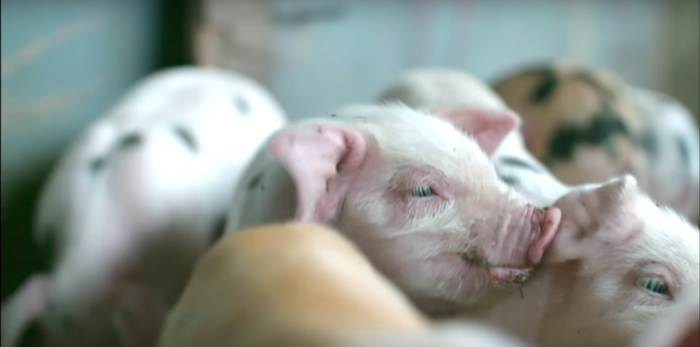The latest monthly update on the Scottish meat market from Quality Meat Scotland (QMS) has revealed that farmgate prices for pigs have eased off, following consistent gains from the beginning of March up until the end of July.
Having closed July at 164.8p/kg, the SPP edged marginally lower for two weeks before picking up slightly in the third week of August, settling at 164.7p/kg. Industry sources suggest that spot prices have dropped back below contract levels, signalling that the imbalance between supply and demand, which had been underpinning farmgate prices, has now been eroded. Evidence from GB price reporting abattoirs indicates that weekly slaughter volumes in August have been at their highest levels since April, while carcase weights have also picked up. Although the recent stabilisation of the market has lowered the year-on-year price premium, it remained at a still significant 21% in the week ending August 19.
In contrast to the price per kilo, the average price of a carcase within the SPP sample has continued to edge higher. This has been the result of an unseasonal increase in carcase weights since the beginning of July. In the third week of August, the average carcase price reached £137.36 and was 67p higher than at the end of July. This was down to a 0.45kg increase in the average carcase weight more than offsetting a 0.2p fall in the average price per kilo. Compared to the corresponding week last year, the carcase price was 23% higher.
Weaner prices began to show stability earlier than finished pig prices and have now lacked overall direction since early June. The average price paid for a 30kg weaner has been trading around the £60 per head level whereas the 7kg weaner price has been sitting at around £44.50. Despite stabilising in recent weeks, prices remain significantly higher than last year, averaging 33% higher for a 30kg store pig and 36% higher for a 7kg store. Relative to the value of a finished pig carcase, the 30kg weaner price has dropped back from 45% to 44%, while the 7kg weaner price has steadied at 32.5% of it.
At Scottish abattoirs, prime pig slaughterings held higher than 2016 for a second month in July. A 5% month-on-month increase in the average weekly kill to just over 5,900 head pushed throughput 11% higher than in July 2016 at 23,650 head. The average number of sows processed each week recovered after slipping back in June, climbing to 480 head. Since the beginning of August, Scottish slaughterings have been disrupted by fire damage at Brechin abattoir.
During July, E&W abattoirs are estimated to have processed 673,950 prime pigs. Although this was higher than in June once a working day adjustment has been applied, numbers trailed year earlier levels for the tenth time in eleven months. The sow kill remained well below 2016 levels, down 13%, suggesting that producers may be rebuilding their herds. DAERA figures show that, at 119,950 head, NI slaughter plants processed 6.5% more prime pigs than in July 2016. Within this total, home produced pigs rose by 5.5% while imports increased by 9.5%, raising the share of imported pigs to over 27% from 26.5% in June 2016.
The full report can be found here http://www.qmscotland.co.uk/sites/default/files/market-report-aug-2017.pdf




